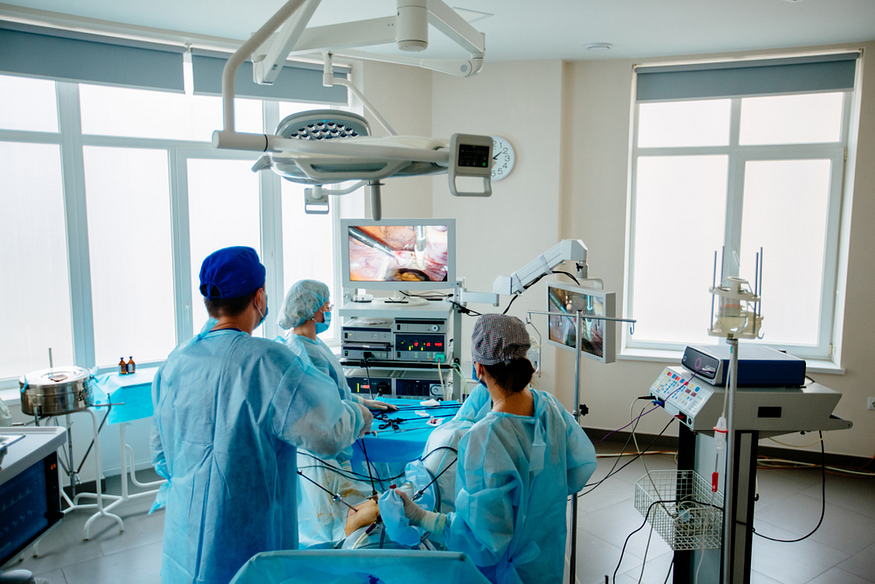A Comprehensive Guide to Laparoscopy Training for General Surgeons

In the evolving field of surgery, laparoscopic techniques have revolutionized the way procedures are performed. For general surgeons, mastering these minimally invasive techniques is essential to delivering high-quality patient care. This guide provides a comprehensive overview of laparoscopy training for general surgeons, exploring its importance, key components, benefits, and the best pathways to achieve mastery in this field.
Why Laparoscopy Training is Essential for General Surgeons
Laparoscopy, also known as minimally invasive surgery, involves small incisions and the use of a camera to guide the procedure. Compared to traditional open surgeries, laparoscopic techniques offer numerous advantages, including reduced patient recovery time, minimized scarring, lower infection risks, and shorter hospital stays.
For general surgeons, training in laparoscopy is crucial as it opens up a wide range of surgical opportunities. It enables surgeons to perform complex procedures like cholecystectomy, hernia repair, appendectomy, and even colorectal surgeries with greater precision and fewer complications. As patient demand for minimally invasive options continues to rise, acquiring these skills is not just an option but a necessity for modern surgeons.
Components of a Comprehensive Laparoscopy Training Program
- Theoretical Knowledge A strong foundation in the basics of laparoscopy is the first step in training. Surgeons need to understand the principles of minimally invasive surgery, patient selection criteria, anatomy, and the potential complications associated with laparoscopic techniques.
- Hands-On Training Practical experience is the cornerstone of laparoscopy training. Surgeons should engage in hands-on sessions that include simulation-based learning and cadaveric workshops. This approach allows them to practice various laparoscopic techniques in a controlled environment, improving their dexterity and hand-eye coordination.
- Live Surgical Observation Observing experienced surgeons perform live laparoscopic procedures is invaluable. It provides insight into the decision-making process during surgery, the handling of unexpected complications, and the efficient use of laparoscopic instruments.
- Supervised Surgical Practice Under the guidance of mentors, surgeons should participate in supervised surgical practice. This step is crucial for refining their skills, gaining confidence, and ensuring they are ready to perform laparoscopic procedures independently.
- Feedback and Evaluation Constructive feedback from experienced mentors is essential for growth. Regular evaluations help identify areas for improvement and ensure that surgeons meet the standards required for performing safe and effective laparoscopic surgeries.
Benefits of Advanced Laparoscopy Training for General Surgeons
- Enhanced Surgical Skills: Laparoscopy training significantly improves a surgeon’s precision, dexterity, and efficiency in the operating room.
- Increased Career Opportunities: Mastery of minimally invasive techniques can open doors to specialized fields and high-demand positions within the healthcare industry.
- Improved Patient Outcomes: Surgeons who excel in laparoscopic techniques can offer their patients faster recovery times, reduced postoperative pain, and lower complication rates.
- Professional Development: Continuous learning and skill enhancement through laparoscopy training keep surgeons at the forefront of surgical advancements.
Choosing the Right Laparoscopy Training Program
When selecting a laparoscopy training program, it’s essential to consider several factors that can impact the quality of learning:
- Accreditation and Reputation Ensure that a reputable institution with proper accreditation offers the training program. Look for programs that have a history of producing skilled laparoscopic surgeons.
- Experienced Faculty Learning from experienced mentors who are leaders in the field can significantly improve the quality of training. Opt for institutions with a team of experts who can provide both theoretical knowledge and hands-on experience.
- Comprehensive Curriculum A well-rounded curriculum should cover the theoretical aspects, hands-on training, live surgical demonstrations, and simulation-based practice. It should also include opportunities for supervised surgeries to enhance practical skills.
- Hands-On Practice Opportunities Prioritize programs that provide ample hands-on practice in a clinical setting. The more practice you get, the better you’ll develop the necessary skills and confidence to perform laparoscopic surgeries independently.
- Global Recognition Choose a program that is recognized internationally. This will add credibility to your skills and make it easier to advance your career globally.
Top Institutes for Laparoscopy Training for General Surgeons
Several institutes around the world offer high-quality laparoscopy training for general surgeons. Some of the best institutions for laparoscopic training include:
- The Medicity — Laparoscopic Training Institute in India: Known for its comprehensive hands-on training and experienced faculty, this institute offers world-class courses designed to meet the needs of general surgeons.
- European Academy of Laparoscopic Surgery: Offers intensive courses with a focus on practical skills and the latest laparoscopic techniques.
- World Laparoscopy Hospital, India: Renowned for its advanced laparoscopic training programs with a blend of theoretical knowledge and practical experience.
.jpg)

Comments
Post a Comment